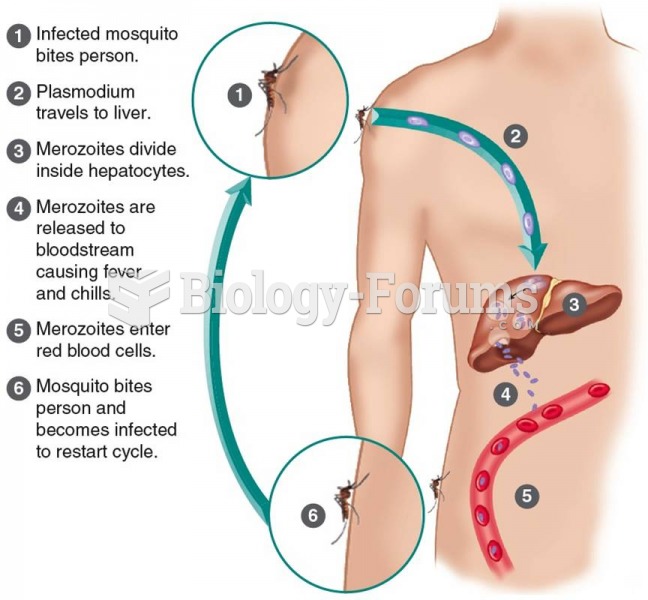|
|
|
Did you know?
Fewer than 10% of babies are born on their exact due dates, 50% are born within 1 week of the due date, and 90% are born within 2 weeks of the date.
Did you know?
Egg cells are about the size of a grain of sand. They are formed inside of a female's ovaries before she is even born.
Did you know?
It is difficult to obtain enough calcium without consuming milk or other dairy foods.
Did you know?
Asthma cases in Americans are about 75% higher today than they were in 1980.
Did you know?
The average office desk has 400 times more bacteria on it than a toilet.







